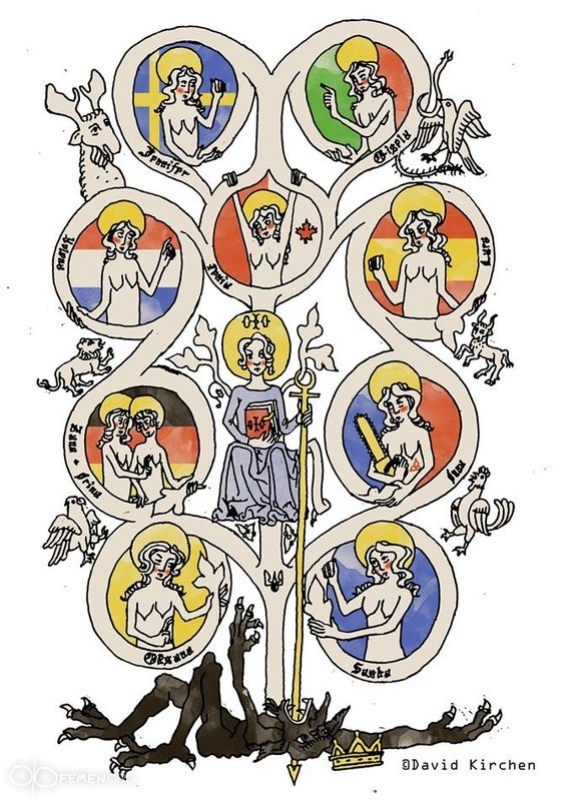Topless Jihad: Why Femen Is Right
< < Go Back
The radical feminist group has ignited human-rights debates we need to have.
Since launching its “topless jihad” protests across Europe and elsewhere on April 4, Femen has stirred up a media maelstrom, with commentators, mostly Muslim men and women living in the West, taking to the airwaves or the Internet on CNN, the New York Times, Al Jazeera English, and the Huffington Post (and elsewhere) to call the group racist, classist, imperialist, colonialist, Eurocentric, Islamophobic, orientalist, neo-orientalist, cowardly, or, at best, naïve, and foolish.
The overall message to Femen has been, in fact, nothing less than “Sit down and shut up.” Your skin color and European provenance disqualify you from expressing views on Islam and how Muslim women are treated in the Islamic world.
Yet abuse perpetrated against women in Islam’s name lies at the heart of the problem. Only occasionally did the critics note that Femen carried out its most recent mass protest in defense of 19-year-old Amina Tyler, a Tunisian aspirant to Femen who posted, on Femen’s Facebook Tunisia page topless photos of herself, with the words, in Arabic, scrawled across her chest, “My Body Belongs to Me and Is Not the Source of Anyone’s Honor.” Among democratically minded folk, this would not be a radical proposition, if the method of delivery — Femen’s trademark method, involving slogans painted on bare breasts — certainly is.
By now it should be clear that with Femen, we are dealing with something new. Femen originated in Ukraine, born of young women who grew up without exposure to the West’s culture of political correctness and who have scant respect for it; from their country’s Soviet past, they know how deleterious the stifling of free speech can be. Now that they have moved to the West, Femen has courageously broken rules and enlivened the debate over religion’s role in our world. Its activists are charting a new route for public discourse about women and religion, and making it an unabashedly universal discourse, venturing into realms where they may be hated, and they may yet pay a high price for this. But that they have gotten people talking, even shouting and crying, is undeniable, and it is good; only through debate and discussion, sometimes painful, often unsettling, will we progress.
Far from discouraging the discourse they have initiated, we should welcome it.
More From The Atlantic:




